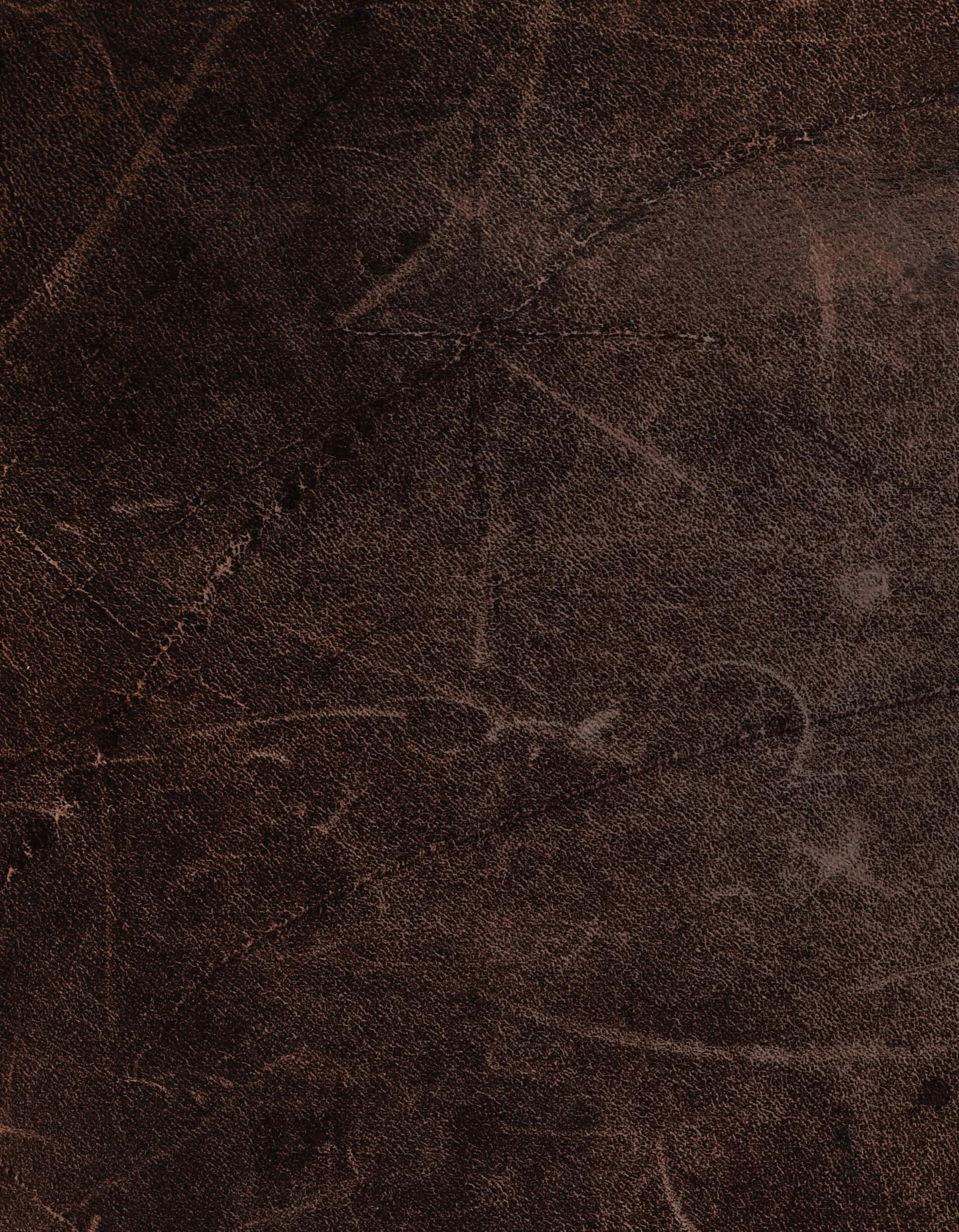
7 minute read
The Four-Time Feat of
The Four-Time Feat of Making the Finals
An Interview with Will Lummus
Advertisement
Rodeo Life: You have three consecutive WNFR qualifications under your belt and coming up on your fourth, how have these past performances shaped you as a competitor and prepared you more for a run at a World Champion Title?
Will Lummus: I think that knowledge is everything at the WNFR. Being there as many times as I have, has been awesome because now I know what to look for and what to expect. There's so much adrenaline that goes into effect and the energy in that building is ridiculous, so being able to have already been there is pretty cool.
RL: What was your favorite rodeo this season?
WL: One of my favorite rodeos every season is Estes Park because of the beauty of it and being able to drive up through the mountains to get there. It's just a really cool place to hang out. While it’s 90 degrees everywhere else, it's a good 65 degrees there. You’re likely to see ten elk while you're going through there. It's just a cool place to be and it's always been one of my favorites. Probably my overall favorite rodeo is Salinas. I chose not to go to the tour finals that just finished. The only reason I decided not to go is because I am already high up in the standings and there's just so many variables at that rodeo that could go wrong, and at this time of year, I wouldn’t have time to heal up before the Finals.
RL: 2022 will mark a decade since you’ve became a PRCA member. How has rodeo evolved over the past decade? If you could go back, what advice would you give yourself?
WL: I bought my card and I became a member in in 2012, but I didn't start really rodeoing until 2017. I was focusing on finishing school. As far as myself in 2017 when I started rodeoing for a living, I have always been a confident person. I always knew I could do well. But when you get out there, it's different. Coming from the southeast where I come from, all of the rodeos you go to you need to win first or second if you want to make money at rodeo. They obviously don't pay as much as some of the bigger rodeos when you're really in it for a living. My mentality when I started rodeoing in 2017 was that every time I nodded, I needed to try to win first. But it’s not always that way. There are so many rodeos throughout the year that you can place 5th or 6th and still win a couple thousand.
If I could go back, I would tell myself to relax and make the runs. You're not competing against everybody else; you're competing against that animal. As long as you make the best run on the steer that you have, that is all you can do. If you win, you win, and if you lose, don't beat yourself up.
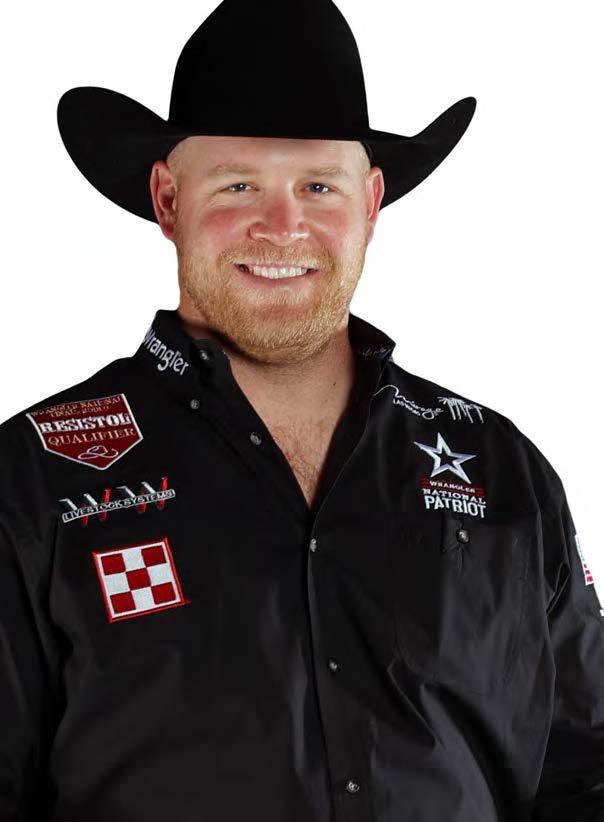
RL: Many speculate rodeo as a model of the American Dream. What does the American Dream mean to you and how has rodeo helped you achieve it?
WL: I feel like so much is taken for granted. If you have a roof over your head and food on the table, you can wake up and be happy about doing something. I think if you can be happy doing something and make a living doing it, and it provides for you and your family, that's the ultimate American Dream.
RL: Has your bachelor’s degree in exercise science and wellness and your Physical Therapy Assistant certification helped your rodeo career at all? What do you hope to do with these degrees one day?
WL: At one point, all I wanted to do was practice physical therapy. That was what I honestly thought I was going to do. When I did start rodeoing, it definitely helped my career plenty as far as keeping myself and the other guys in the rig healthy. We try to keep everybody in the rig healthy. It does come in very handy for us on the road.
I started a business last year when COVID hit and there weren’t a lot of rodeos to go to. I built a lot of pipe fence and it's done very well lately. I don't know if that's something I want to do forever, or if I want to practice physical therapy, I'm not really sure about that yet. But I have been keeping up with my license renewals and continuing education. It is still an option for me. I am happy that I have options. g
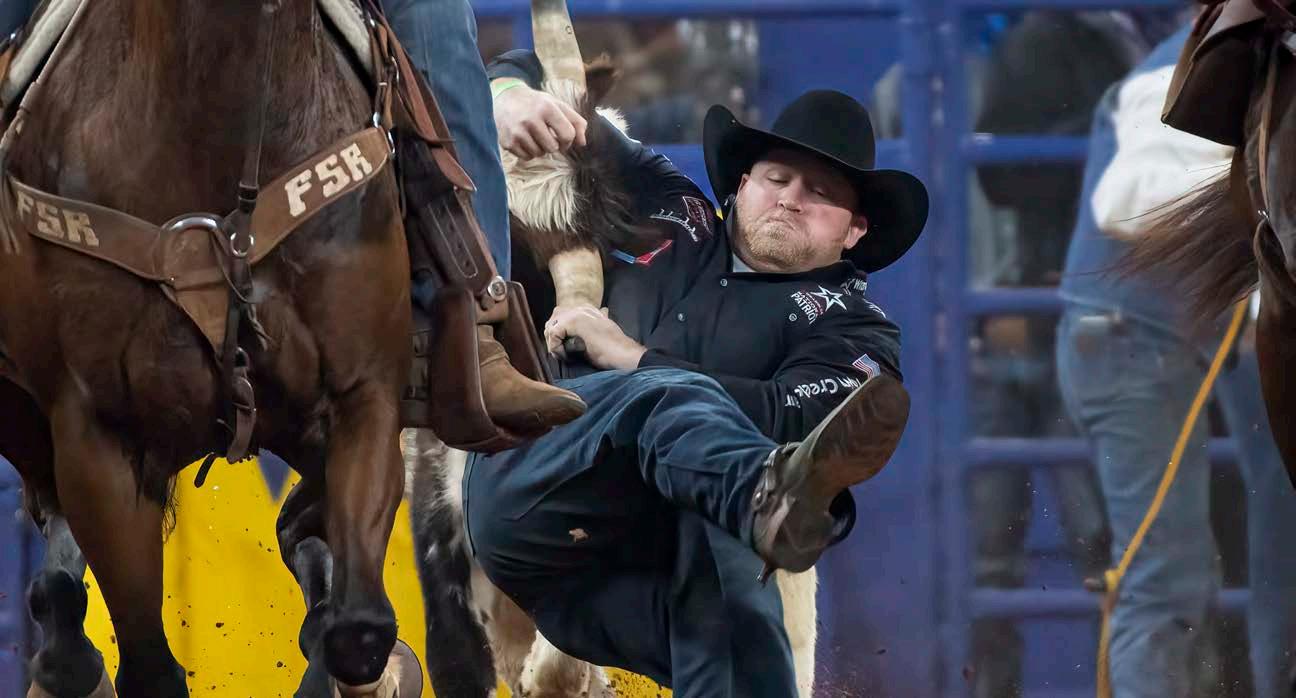
I bought my card in 2012 I was going to start rodeoing, but then I fell in love with physical therapy. I didn't start rodeo until 2017 because I had to finish school and everything. It put a halt to my rodeo career, but it was for my future. I have a lot of options now.
RL: Who has influenced your rodeo career the most?
WL: My dad and my uncle. My uncle rodeoed for a living back in the early 2000s and made the Finals four times and my dad was always there for him. My dad rode bulls but never really had the option to take off and go rodeo. But those two guys have definitely been an influence. My wife has been really, really, good pushing me to be better and pushing me to follow my dreams to try to go for the gold buckle. I have a lot of people to help me along. My mom was there helping me to finish school because she knew that I wanted to go rodeo but I needed to finish school. There are a lot of people that helped me early on. Jen and I got married four years ago and she’s had a huge impact on my success in rodeo by keeping me motivated and keeping me going.
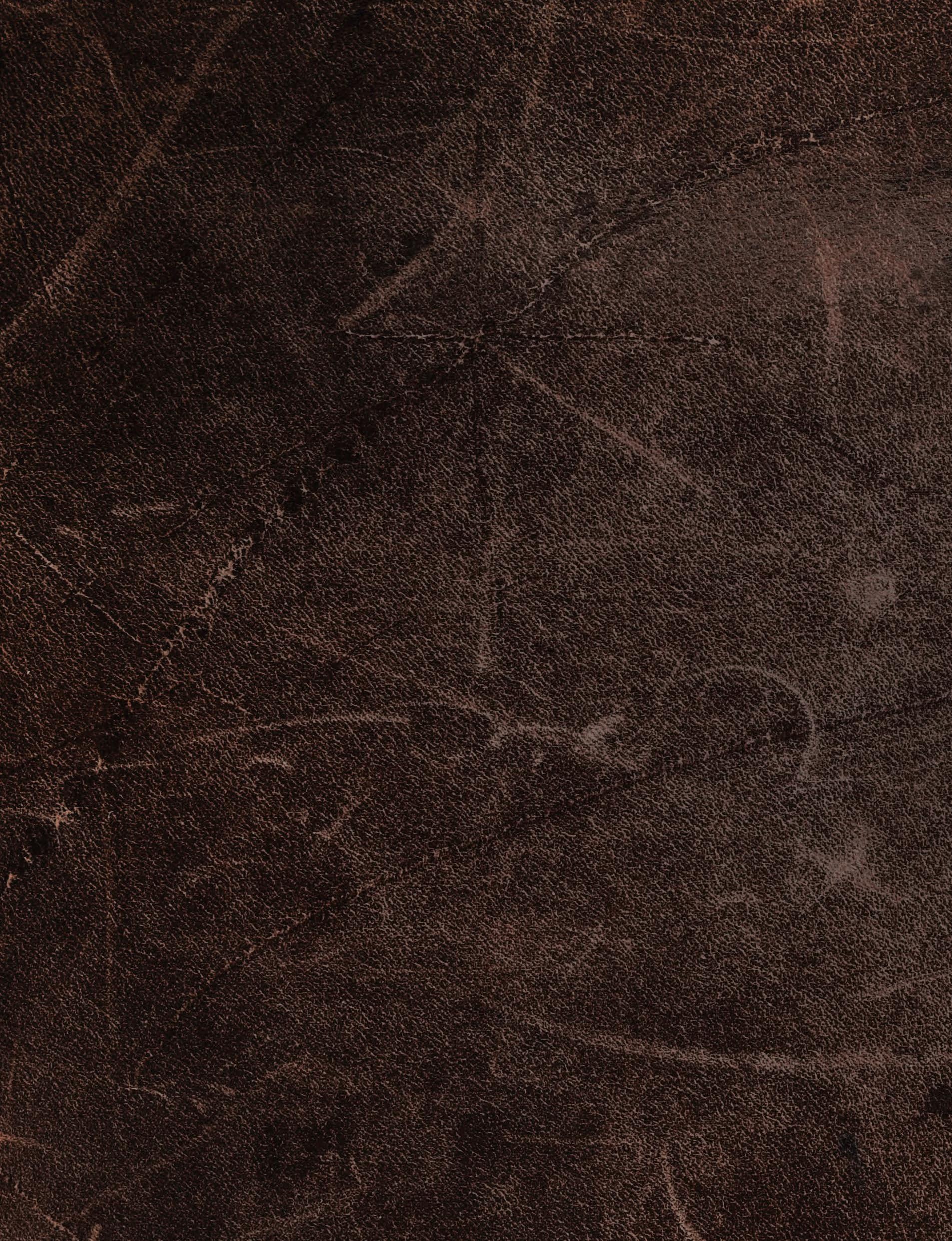
RL: What has been your greatest accomplishment in your rodeo career so far?
WL: Making the National Finals is a feat in itself and to do it four times in a row is something that I'm proud of. I’m very proud of being able to make the Finals four times consecutively. I've had some success winning some of the other major rodeos and that's been cool too. I still have goals that I would like to achieve; I'd like to win some bigger rodeos and win the gold buckle, so we'll see how this year goes and can see what goals to set for next year.
RL: What do you hope to accomplish in your professional rodeo career?
WL: When I started rodeoing in the Finals, the first year I made the Finals, it paid $26,000 a night. It started paying that like in 2015 or something like that. My goal for my rodeo career was to set myself up so when I finish rodeoing, I could do a lot of the things I wanted; I wanted a business and to be able to build a house. I want to be able to be successful when I get done rodeoing and not owe $1,000,000. The ultimate goal is to put back enough money to be able to pay for my future and set it up to where when I get done rodeoing, I can be successful and not have a whole lot of debt. That's what drives me to be better.
RL: With so many things that can go wrong and with so many things left up to chance, how do you deal with the uncertainties that come with the professional rodeo territory? What makes rodeo so rewarding?
WL: For me it just keeps going back to the money. If I can make the Finals, there's just so much money up for grabs that I can put back for the future. There are a lot of people that will tell you they're in it for this and that and the other, but I ultimately started to rodeo professionally when it started paying so much. Now with media contracts and TV, it's really growing. It's going to be great for the future.
RL: What advice do you have for aspiring Steer Wrestlers who want to make a professional career out of rodeo?
WL: It takes a lot time, just like any other rodeo event or like any other professional sport. It literally takes blood, sweat and tears. You have to be able to put in the time and effort because it's not given to you. Nothing is given in this sport, or any other professional sport for that matter. It takes everything you have and it takes a lot away from you. You have to have the opportunity first and the want second. It's something that you're going to have to work for. And it is worth it when you do.
58 Rodeo LIFE SUNWEST
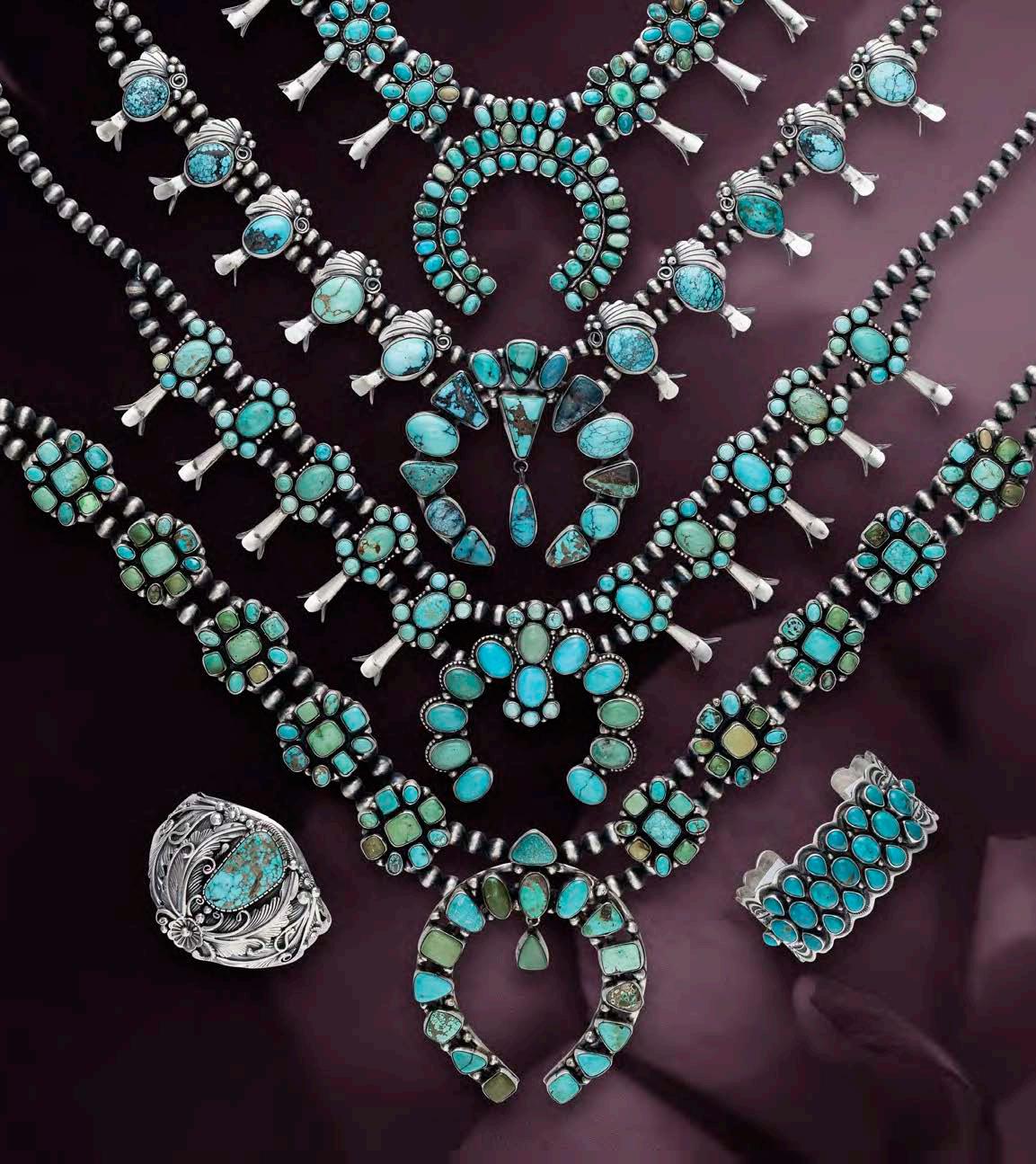
www.sunwestsilver.com | info@sunwestsilver.com | 1-800-771-3781











